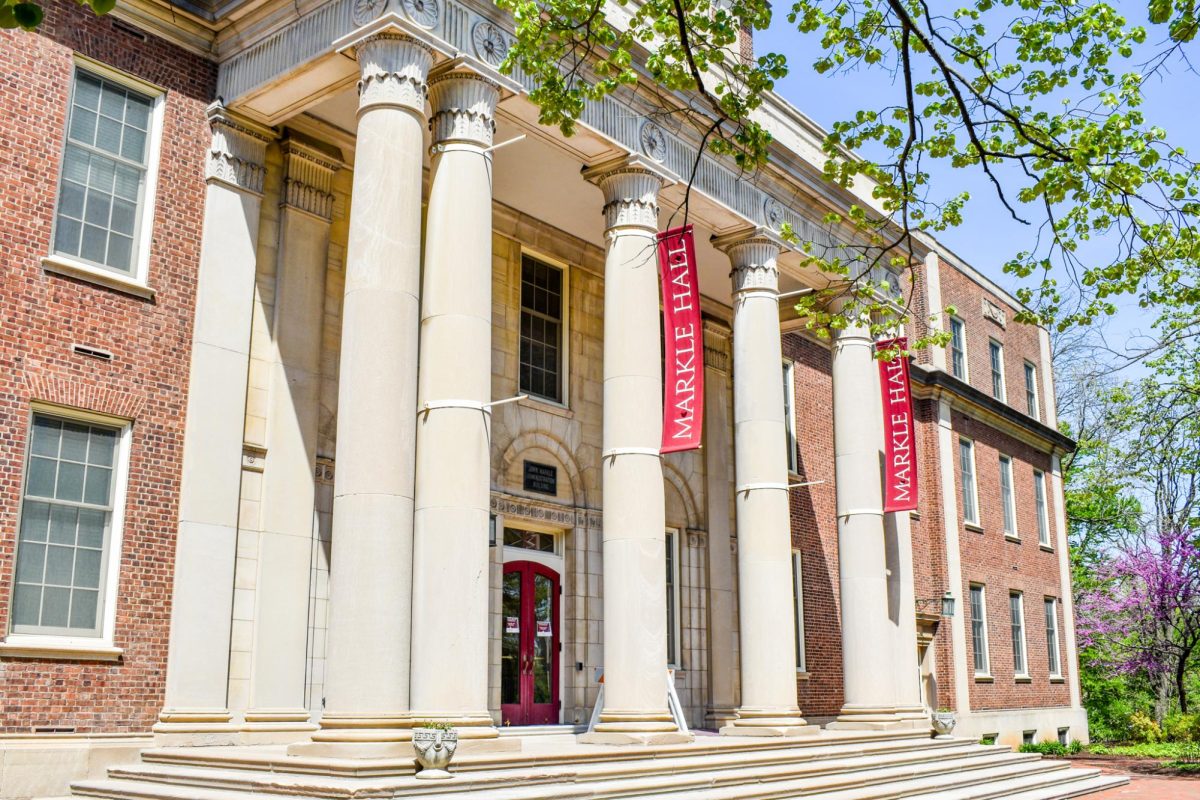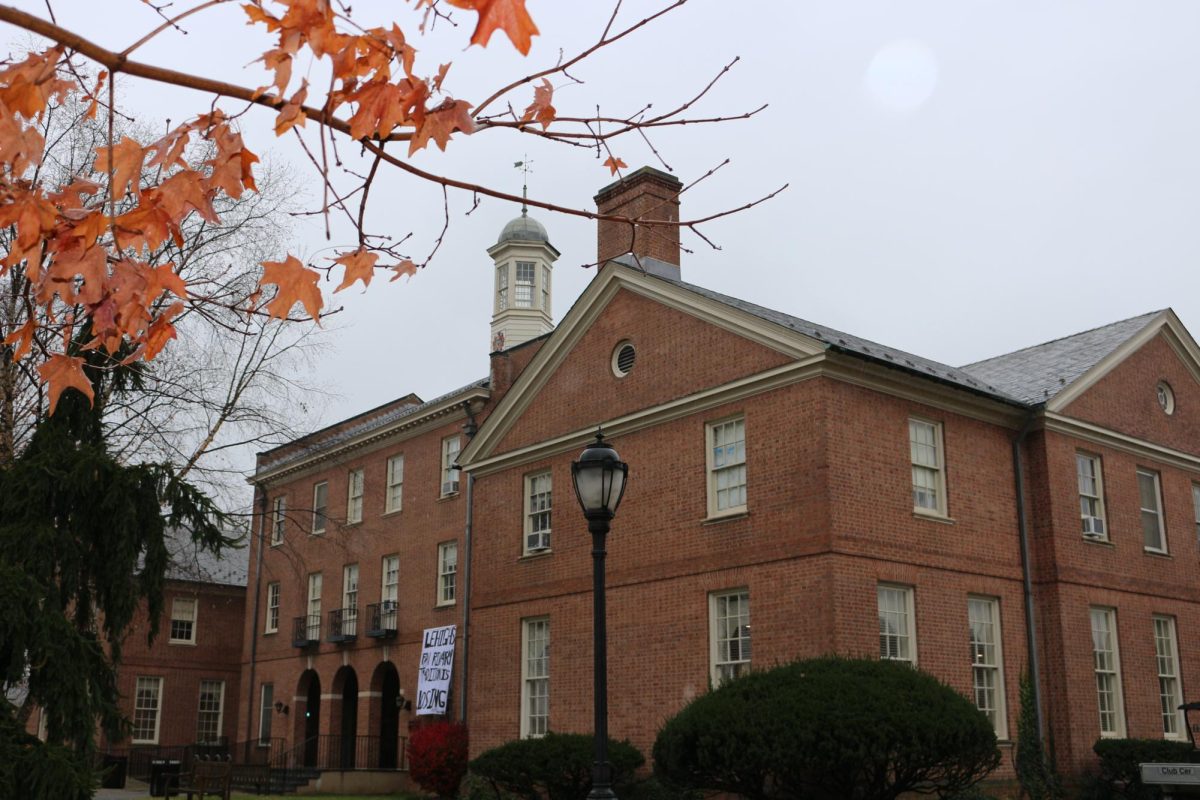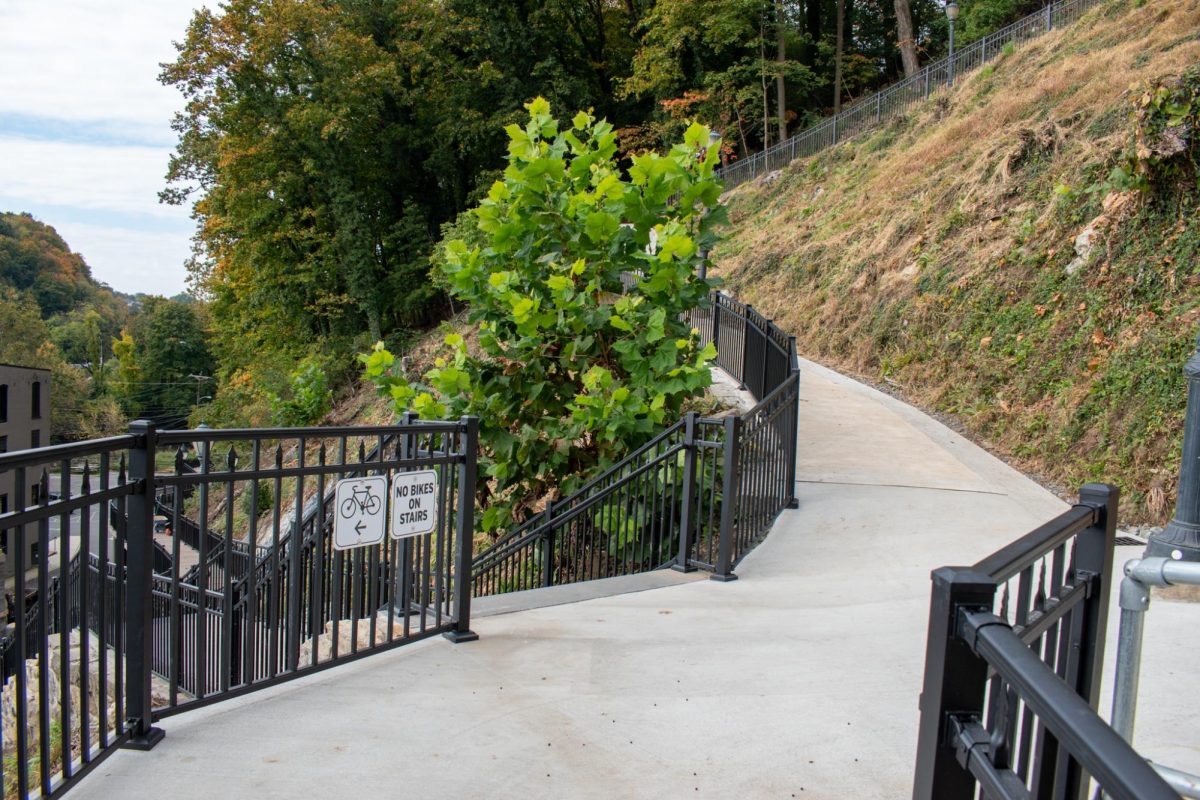Construction of Lafayette’s long-awaited escarpment multimodal trail concluded in mid-October. The college initially planned to complete the project in June, but the topography of the construction site and a stop-work order from city hall caused setbacks.
“The biggest hurdle on this project was the site conditions,” Scott Kennedy, director of facilities operations, wrote in an email. “The steep slope made it difficult for workers and limited machine access. The rocky terrain resulted in significant rock hammering, rock removal and structural requirements.”
But the steep hill was not the only obstacle for the college; Lafayette drew the ire of Easton administrators when it deforested the hillside without approval.
“Whoever was doing the planting management or the site management basically did a shrub clear-cut,” Ian Kindle, chair of the Easton’s Environmental Advisory Council, said. “That basically brought everything down to ground level, which we didn’t think was the best plan was immediate treatment for invasive species and reestablishment of other woody species.”
Easton’s Zoning and Planning Administration prohibited further construction from continuing if Lafayette did not submit updated plans within fifteen days. The college complied, drawing up new plans that included a commitment to replanting trees that had been cleared.
The trees will not be replanted on the deforested hillside, however, because of how steep the hill is.
“I think that there were failures on a lot of levels in this project, both things that were not specified in original plans and then things later that seemed to never happen,” Kindle said, “But I think the college has been very responsive in hearing some of our feedback for how to move forward.”
Throughout the fall, the project had been a disruption for students living in Ruef and Keefe Hall, which are situated next to the top of the trail. Several students voiced complaints about noise from the construction.
“We’d get woken up by jackhammering at 7 a.m.,” Drake Olivier ‘27, a resident of Ruef Hall, said.
“The noise is all day,” Brady Shugrue ‘27, another Ruef Hall resident, said. “I’d be trying to nap after class and sometimes it’s still going.”
But for all its disruptions, several upgrades were brought to the trail: new seating areas, revamped lighting along the pathway and reconstructed stair segments to name a few. With these improvements, the college sought to facilitate an easier and safer way to get from College Hill to downtown Easton.
“I’m excited to be able to get to Easton so easily – restaurants, the farmer’s market – just being able to walk right down into Easton,” Ari Welch ‘26, who joined the Lafayette community while the trail was still under construction, said.
























































































































